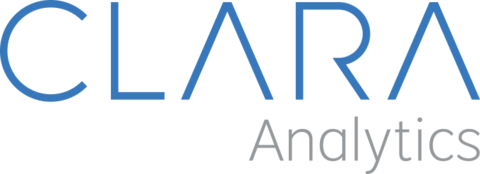CLARA Analytics Unveils AI-Driven Subrogation Detection for Insurance Claims
CLARA Analytics Unveils AI-Driven Subrogation Detection for Insurance Claims
Triage Enhancements Help Insurers Recover Millions in Missed Opportunities
SUNNYVALE, Calif.--(BUSINESS WIRE)--CLARA Analytics (“CLARA”), a leading provider of artificial intelligence (AI) technology for insurance claims optimization, today announced game-changing subrogation detection capabilities that promise to help insurers identify millions in previously missed recovery opportunities. The enhancements to CLARA’s flagship CLARA Triage product automatically identify potential subrogation and risk transfer opportunities, providing narrative assessments and numeric scores that help claims adjusters to focus on cases that offer the greatest potential.
"The market has a significant gap in regard to subrogation opportunity identification. Our mission is to transform the way claims management teams work with their subrogation partners to deliver transformative financial results."
Share
With the National Association of Insurance Commissioners (NAIC) estimating $15 billion in annual missed subrogation opportunities due to manual workflows and documentation issues, CLARA’s new technology directly addresses one of the industry’s most significant financial challenges. Existing users of CLARA Triage have improved their combined ratios by 2%-5% after a year of claims development.
“CLARA’s core values include constant innovation and an obsessive focus on our customers’ needs,” said Heather H. Wilson, CEO at CLARA Analytics. “The market has a significant gap in regard to subrogation opportunity identification. Our mission is to transform the way claims management teams work with their subrogation partners to deliver transformative financial results. Our new subrogation detection capabilities are a major step forward in that journey.”
CLARA Triage helps insurance companies, third-party administrators (TPAs), and risk managers at self-insured enterprises to identify and prioritize high-risk claims continuously from first notice of loss until final settlement. It leverages predictive and generative AI technology to assess the severity and complexity of each claim, enabling adjusters to make fully informed decisions and improve overall outcomes. CLARA’s large contributory database draws from the experience of multiple carriers, providing a foundation for deep contextual understanding of medical and legal risk.
CLARA’s new subrogation detection capabilities are a major advancement for the Triage product, leveraging the company’s comprehensive insurance claims data with best-in-class GenAI and machine learning models to identify potential recoverable opportunities, score those opportunities based on likely financial returns, and offer AI explainability narratives of potential subrogation scenarios. Triage ingests new claims data as soon as it becomes available, updating scores and alerting claims managers when a key threshold is met.
CLARA periodically delivers ROI reports to each of its clients with high adoption of their platform, demonstrating a payback of 500% in most cases, with some achieving even much higher gains. With the release of the new subrogation and risk transfer features in CLARA Triage, the company aims to further increase the value it provides to its customers.
“CLARA’s company culture is all about reaching higher, always looking for ways to add more value for our customers,” Wilson continued. “With these new subrogation and risk transfer detection capabilities, we can help insurers achieve even higher ROI.”
About CLARA Analytics
CLARA Analytics is the leading AI as a service (AIaaS) provider that improves casualty claims outcomes for insurance carriers, MGAs, reinsurers, and self-insured organizations. The company’s platform, CLARAty.ai, applies image recognition, natural language processing, and other AI-based techniques to unlock insights from medical notes, legal demand packages, bills, and other documents surrounding a claim. CLARA’s predictive insights give claim professionals augmented intelligence that helps them reduce claim costs and optimize outcomes for the carrier, customer and claimant. CLARA’s customers include companies from the top 25 global insurance carriers to large third-party administrators and self-insured organizations. Founded in 2017, CLARA Analytics is headquartered in California’s Silicon Valley. For more information, visit www.claraanalytics.com, and follow the company on LinkedIn and @CLARAAnalytics.
All brand names and solution names are trademarks or registered trademarks of their respective companies.
Tags: CLARA Analytics, CLARA Triage, CLARAty.ai, subrogation, risk transfer, claims optimization, claims adjusters, claims managers, insurtech, claims, claims management, artificial intelligence, AI, generative AI, GenAI, machine learning, workers compensation, workers comp, predictive analytics, commercial insurance, general liability
Contacts
Media Contact:
Dottie O’Rourke
TECHMarket Communications for CLARA Analytics
650-344-1260
CLARAanalytics@techmarket.com
